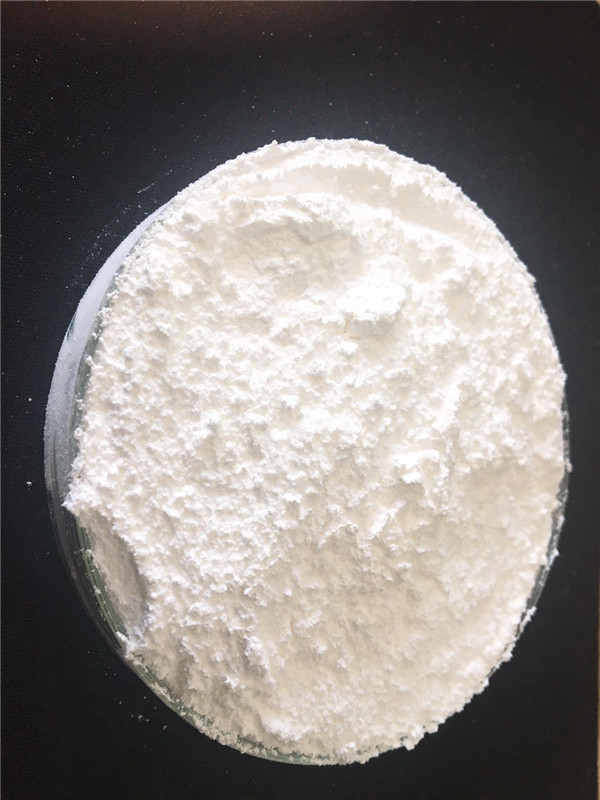
News
Jun . 13, 2024 11:03 Back to list
PT141, a peptide, measures 10mg in quantity.
PT141 and Its 2010mg Milestone A Journey into Peptide Therapeutics
PT141, also known as Bremelanotide, is a synthetic peptide that has garnered significant attention in the realm of pharmaceutical research, particularly for its potential therapeutic applications. In 2010, a critical milestone was achieved when this compound reached a pivotal stage in its development, with studies conducted on a 2010mg dosage. This article delves into the significance of PT141 and the impact of the 2010mg study on the field of peptide-based therapeutics.
PT141 is derived from Melanotan II, a peptide hormone that stimulates melanin production in skin cells. However, unlike Melanotan II, PT141 exhibits unique pharmacological properties, primarily targeting the nervous system rather than the skin. Its primary function lies in its ability to activate the melanocortin receptors MC1-R and MC4-R, which play crucial roles in sexual desire and erectile function. This has led to its investigation as a potential treatment for conditions like female sexual interest/arousal disorder (FSIAD) and erectile dysfunction (ED).
In 2010, a pivotal phase III clinical trial was conducted to evaluate the safety and efficacy of PT141 in a 2010mg dose. This study, a double-blind, placebo-controlled trial, involved a large cohort of patients suffering from FSIAD and ED. The choice of such a high dose was strategic, aimed at understanding the upper limit of tolerance and potential therapeutic effects.
The results of the 2010mg study were groundbreaking
The results of the 2010mg study were groundbreaking The results of the 2010mg study were groundbreaking
The results of the 2010mg study were groundbreaking
The results of the 2010mg study were groundbreaking
The results of the 2010mg study were groundbreaking pt141 10mg. While it was found that PT141 was well-tolerated at this dose, with minimal side effects, it demonstrated significant improvements in sexual desire and satisfaction compared to the placebo group. This marked a major step forward in the development of peptide-based therapies for sexual dysfunction, challenging conventional treatment approaches.
The success of the 2010mg study not only validated PT141's potential but also opened new avenues for peptide research. It highlighted the importance of peptides as therapeutic agents, given their specificity, low toxicity, and potential for targeted drug delivery. Furthermore, it underscored the need for rigorous clinical trials to explore the full therapeutic potential of these compounds, especially in doses beyond what was initially thought feasible.
In conclusion, the 2010mg study on PT141 was a turning point in peptide research, pushing the boundaries of our understanding of peptide-based therapeutics. It paved the way for the FDA approval of PT141 in 2019 under the brand name Vyleesi, solidifying its place in the treatment landscape for sexual dysfunction. As we continue to unravel the complexities of peptides, the 2010mg PT141 study serves as a beacon, demonstrating the power of scientific inquiry and the potential of peptides in revolutionizing medicine.
pt141 10mg. While it was found that PT141 was well-tolerated at this dose, with minimal side effects, it demonstrated significant improvements in sexual desire and satisfaction compared to the placebo group. This marked a major step forward in the development of peptide-based therapies for sexual dysfunction, challenging conventional treatment approaches.
The success of the 2010mg study not only validated PT141's potential but also opened new avenues for peptide research. It highlighted the importance of peptides as therapeutic agents, given their specificity, low toxicity, and potential for targeted drug delivery. Furthermore, it underscored the need for rigorous clinical trials to explore the full therapeutic potential of these compounds, especially in doses beyond what was initially thought feasible.
In conclusion, the 2010mg study on PT141 was a turning point in peptide research, pushing the boundaries of our understanding of peptide-based therapeutics. It paved the way for the FDA approval of PT141 in 2019 under the brand name Vyleesi, solidifying its place in the treatment landscape for sexual dysfunction. As we continue to unravel the complexities of peptides, the 2010mg PT141 study serves as a beacon, demonstrating the power of scientific inquiry and the potential of peptides in revolutionizing medicine.
 The results of the 2010mg study were groundbreaking
The results of the 2010mg study were groundbreaking
The results of the 2010mg study were groundbreaking
The results of the 2010mg study were groundbreaking pt141 10mg. While it was found that PT141 was well-tolerated at this dose, with minimal side effects, it demonstrated significant improvements in sexual desire and satisfaction compared to the placebo group. This marked a major step forward in the development of peptide-based therapies for sexual dysfunction, challenging conventional treatment approaches.
The success of the 2010mg study not only validated PT141's potential but also opened new avenues for peptide research. It highlighted the importance of peptides as therapeutic agents, given their specificity, low toxicity, and potential for targeted drug delivery. Furthermore, it underscored the need for rigorous clinical trials to explore the full therapeutic potential of these compounds, especially in doses beyond what was initially thought feasible.
In conclusion, the 2010mg study on PT141 was a turning point in peptide research, pushing the boundaries of our understanding of peptide-based therapeutics. It paved the way for the FDA approval of PT141 in 2019 under the brand name Vyleesi, solidifying its place in the treatment landscape for sexual dysfunction. As we continue to unravel the complexities of peptides, the 2010mg PT141 study serves as a beacon, demonstrating the power of scientific inquiry and the potential of peptides in revolutionizing medicine.
pt141 10mg. While it was found that PT141 was well-tolerated at this dose, with minimal side effects, it demonstrated significant improvements in sexual desire and satisfaction compared to the placebo group. This marked a major step forward in the development of peptide-based therapies for sexual dysfunction, challenging conventional treatment approaches.
The success of the 2010mg study not only validated PT141's potential but also opened new avenues for peptide research. It highlighted the importance of peptides as therapeutic agents, given their specificity, low toxicity, and potential for targeted drug delivery. Furthermore, it underscored the need for rigorous clinical trials to explore the full therapeutic potential of these compounds, especially in doses beyond what was initially thought feasible.
In conclusion, the 2010mg study on PT141 was a turning point in peptide research, pushing the boundaries of our understanding of peptide-based therapeutics. It paved the way for the FDA approval of PT141 in 2019 under the brand name Vyleesi, solidifying its place in the treatment landscape for sexual dysfunction. As we continue to unravel the complexities of peptides, the 2010mg PT141 study serves as a beacon, demonstrating the power of scientific inquiry and the potential of peptides in revolutionizing medicine. Share
Latest news
-
Using tadalafil to promote hair growth and combat hair loss effectively.
NewsJul.10,2024
-
Generating a title similar to palmitoyl oligopeptide could be Oligopeptide containing palmitoyl for skincare benefits and rejuvenation.
NewsJul.10,2024
-
Similarity of the compound tra% 100mg/ml in different pharmaceutical formulations
NewsJul.10,2024
-
Negative impacts of tadalafil on health and well-being
NewsJul.10,2024
-
Anastrozole 0.5 mg twice per week for treatment of cancer patients
NewsJul.10,2024
-
Reviewing the effectiveness of kisspeptin in enhancing reproductive health and fertility.
NewsJul.10,2024
